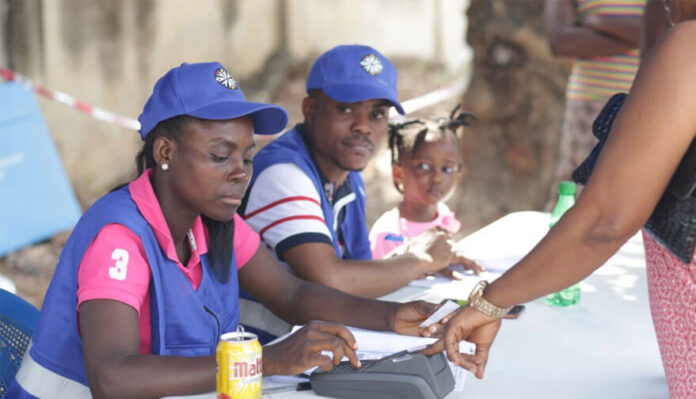
Since 1992, when Ghanaians began voting under the Fourth Republican Constitution, Ghanaians have not been as tensed during the processes leading to a general election as they are today. Many are worried, our youth, women and aged, including foreigners and Diplomats living in the Country. Something urgently needs to be done to proactively reduce and diffuse the tension building up. Otherwise, the simmering tensions can cause a political explosion. And any such an explosion can be extremely catastrophic and detrimental for Ghana.
As said always, Election is a process. It’s not an event and an end in itself. And the 2020 Elections is no exception.
Ever since the incumbent Electoral Commission (EC) Chairperson took office, every electoral activity and electoral processes in the run-up to the December 7th Elections have not passed without controversies. And it appears those who proffered suggestions and attempted to interrogate issues or even challenged some of the EC’s decisions and processes have now been somewhat vindicated.
From the decision to compile a new Voter Register, the procurement processes associated with the acquisition of a new Biometric Election Management software system and accompanying Biometric Verification Devices (BVDs) and Biometric Verification Readers (BDRs), to the actual voter registration exercise, compilation of the new voter’s register, exhibition of the provisional voter register; the EC has been fraught with issues and numerous challenges mainly arising from poor consultation, buy-in of key stakeholders, poor communication, poor implementation and deliberate acts of blindsiding key stakeholders along the way, and palpable acts of deception on the part of the EC.
Underpinning all the issues, challenges and controversies involving the EC is the issue of MISTRUST and the need to build TRUST. Some minority political parties and even Civil Society Organisations (CSOs), have on numerous occasions had cause to complain about the adamant and uncompromising posturing of the Electoral Commission, and the EC’s own poor approach and dealings (engagements) with the political parties.
The current EC does not respect the longstanding role and importance of the Inter Party Advisory Committee (IPAC). The IPAC over the years has been instrumental and delivered tremendous support to the Electoral Commission since its formation. Indeed, much of the stability and credibility of Ghana’s Elections and electoral processes is largely due to the role of IPAC.
Under previous leadership of the EC every decision that got implemented by the EC usually emanated from consultations, collaborative participation and consensual decisions and agreements by IPAC. There was a lot of consensus building amongst political parties and the EC in times past.
However, the situation is not the same presently. So for the current EC to be side-lining IPAC and solely taking decisions for the electoral processes in the forthcoming December 2020 elections is very worrying. The current EC makes decisions without recourse to IPAC. Clearly, IPAC now exists only in name and the reasons why the EC is operating this way is baffling.
Given the high stakes in the upcoming Elections, and at the same time considering the high level of mistrust between the EC and some political parties, some CSOs and the general public, are admonishing the EC to adopt a consultative posturing and trust building approach that seeks to reduce suspicions and thereby diffuse tensions. Such trust engendering activities are necessary for national cohesion and delivery of credible Elections.
A recommendation to build trust will be for the Electoral Commission to allow all its BVDs to be subjected to special system audit by all the Political Parties. This should be done at the District level where the BVDs are safely kept few days ahead of the Elections.
This audit could be done by independent IT persons in the presence of IT specialists of each Political party, District Police heads and possibly representatives from CSOs and Election Observers.
Someone may ask, what is the purpose of this BVD audit? Essentially, we are all aware of “No Verification, No Vote” and need to build consensus and establish how in exceptional circumstances where “manual verification” is deployed, how it could be undertaken without arousing suspicion. This is because the BVDs were not used and tested to verify voters during the just ended Voter Exhibition exercise. This technically means that the BVDs have not been publicly tested to establish their effectiveness. So the functionality of the BVDs should be affirmed by all political parties involved in the upcoming Elections. If done this may help reduce the level suspicion to the barest minimum. Again, it helps check whether each BVD has not already been compromised.
Free, Fair and Transparent Elections is peace making and the benefits of such BVD audit will go a long way in ensuring credible Elections for all political parties and Ghana in general during the December 7th Elections.
Recommendations from a true Citizen
Written: Kwaku Boateng

